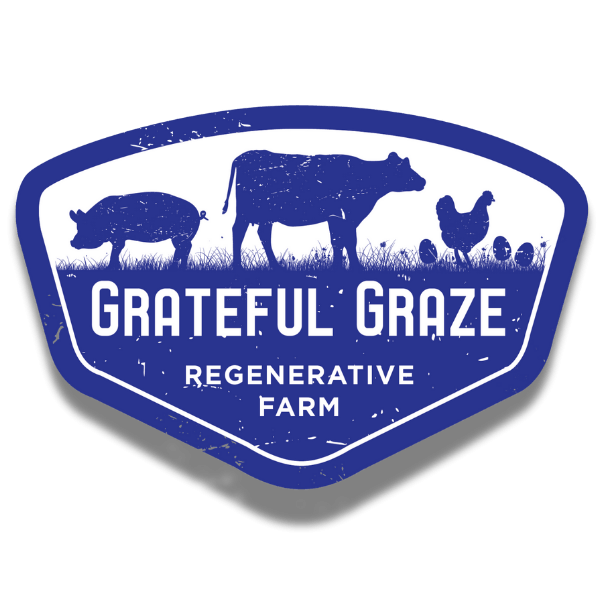We Bee Grateful
posted on
June 18, 2022
We did something new last month - we brought bee hives to the Ranch 226. This Ranch is special because it has had no pesticides applied to it for over 23 years. Neonicotinoid (Neonics) insecticides, which are used on over 90% of the corn and soybeans that are planted locally, have been shown to greatly affect bee populations. Ranch 226 is a sanctuary free from neonics that will allow honeybees and other pollinators to thrive.

In addition to being as bee safe as possible, the wide array of Trees, Shrubs, grasses, and forbs will create a honey that is primed with all of the key enzymes and co-factors needed to help your body cope with local allergens. The honey we produce will be available for sale on our website in the future. The bees belong to a customer and friend, Logan Hamilton. Logan began supporting the bee population three years ago when he learned of their vital contribution to the ecosystem. Here's a bit of what Logan has to say about the bees:
"I got into bees about a little over 3 years ago because I wanted to do my little part of supporting the bee population. They fascinated me with the complexity of their intelligence and social structure. Plus, the little gals need all the help they can get! They are responsible for pollinating 8% of our top 100 crops! We had a spare property across the street from my house that we had been turning into a green space, and bees seemed to be the perfect fit. My daughter and I would watch the bees coming and going all day, Bee TV as my friend called it. We started experimenting with managing the bees in ways that were the least invasive as possible, without sacrificing the overall health of the hives. That ultimately led us to explore horizontal hives and more recently, layens hives which are traditional deep European horizontal hives. We did this all to give the bees hives that were as close to the hive conditions found in nature.
I was drawn to placing hives at Grateful Graze because of Monte’s practice of sustainability and creating farming ecosystems that help to improve the land, not just take away from it. Tfits fit right in line with how I wanted to keep bees. Being able to have hives that rest on CRP land with little to no risk of being exposed to surrounding crop insecticides is a HUGE benefit to the bees. Additionally, being able to have access to as many native flowering plants as possible gives way to creating honey that is not only sourced local but done so on native, local plant species. Over the past few years, I have been in the practice of harvesting honey late season, only taking what the bees don’t need to last the winter instead of making them work as honey factories. Allowing them to feed on their own honey throughout the season, instead of cane sugar supplement, helps promote the overall hive health. If our experiment goes to plan, the hope is to provide honey to Grateful Graze Customers, sourced on Grateful Graze land infused with rich amounts of local pollen to help us cope with those pesky allergies, and sweeten our favorite foods."

Pollinators, primarily bees, help to pollinate much of the world’s food crops. Most of us have heard about the bee population decline, and the big culprits are neonic pesticides. Bringing livestock back to the land is our plan to restore the soil, and now, bringing bees back to our land is our plan to support honeybee success and provide an excellent product for your health. That's just like nature isn't it - all working together to produce favorable outcomes.



